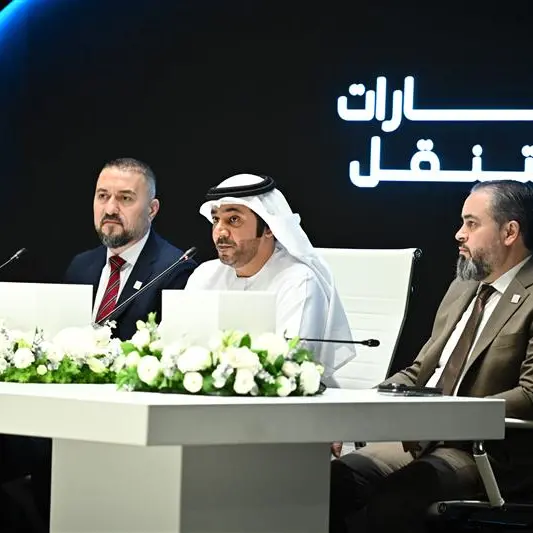Dubai: Roads and Transport Authority (RTA) and Dubai Police General HQ have decided to increase the speed limit on Tripoli Street from 80 to 100 km/h in the sector from Emirates Road to just before Nouakchott Street, and to 90 km/h in the sector from just before Nouakchott Street to Sheikh Mohammed bin Zayed Road. The change will take place as of 25 October 2019.
“The decision to raise the speed limit on Tripoli Street has been taken in coordination with our strategic partner Dubai Police General HQ following elaborate studies conducted by Traffic and Roads Agency in line with Roads Engineering Design Manual and Dubai’s Speed Management Manual. These manuals contain procedures, stipulations and flexible engineering standards governing the setting and assessing of speeds on various roads of the Emirate to ensure they are in line with the latest international practices,” said Eng. Maitha bin Adai, CEO of RTA’s Traffic and Roads Agency.
“Increasing the speed limit to 100 km/h does not apply to the entire Tripoli Street as it applies to non-urbanised areas between Nouakchott Street and Emirates Road. The speed limit on the remainder of Tripoli Street (between interchanges of Sheikh Mohammed bin Zayed Road and Nouakchott Street) has been set to 90 km/h. These changes take into consideration key engineering factors addressing the lack of compliance with the set speed limits, and the use of best traffic enforcement measures in accordance with the correlation between optimal speed rates and the traffic flow.
“Current speed limits are being revised as part of RTA’s traffic safety studies continuously commissioned on vital roads across Dubai. Lowering or increasing speed limits depends on the road condition and the surrounding environment, and is decided in coordination with the strategic partners. The speed limit is judged by a host of engineering factors such as the designed road speed, actual speed observed by most motorists (The 85th Percentile Speed), urbanisation rate on both roadsides, pedestrian movement, and the availability of vital facilities. Consideration is also given to the level of crashes experienced, and the traffic volumes of the road,” added Maitha.
“The existing speed limit signs will be changed to reflect the new speed limits of 90 and 100 km/h. Changes will also include directional and cautionary signs as per the approved standards to ensure safe and smooth transport for all,” she further added.
Major General Eng. Advisor Mohammed Saif Al Zaffein, Assistant Commander-in-Chief for Operations Affairs, Dubai Police, said, “Measures will be taken to adjust speed cameras and set them to match the new speed limits as per the prevailing practices in Dubai. RTA and Dubai Police are engaged in continuous consultation in examining the current speed limits on some roads that need to be adjusted, and take appropriate actions in line with the vision of Dubai Government aimed at enhancing the traffic safety on Dubai roads.”
© Press Release 2019Disclaimer: The contents of this press release was provided from an external third party provider. This website is not responsible for, and does not control, such external content. This content is provided on an “as is” and “as available” basis and has not been edited in any way. Neither this website nor our affiliates guarantee the accuracy of or endorse the views or opinions expressed in this press release.
The press release is provided for informational purposes only. The content does not provide tax, legal or investment advice or opinion regarding the suitability, value or profitability of any particular security, portfolio or investment strategy. Neither this website nor our affiliates shall be liable for any errors or inaccuracies in the content, or for any actions taken by you in reliance thereon. You expressly agree that your use of the information within this article is at your sole risk.
To the fullest extent permitted by applicable law, this website, its parent company, its subsidiaries, its affiliates and the respective shareholders, directors, officers, employees, agents, advertisers, content providers and licensors will not be liable (jointly or severally) to you for any direct, indirect, consequential, special, incidental, punitive or exemplary damages, including without limitation, lost profits, lost savings and lost revenues, whether in negligence, tort, contract or any other theory of liability, even if the parties have been advised of the possibility or could have foreseen any such damages.



















